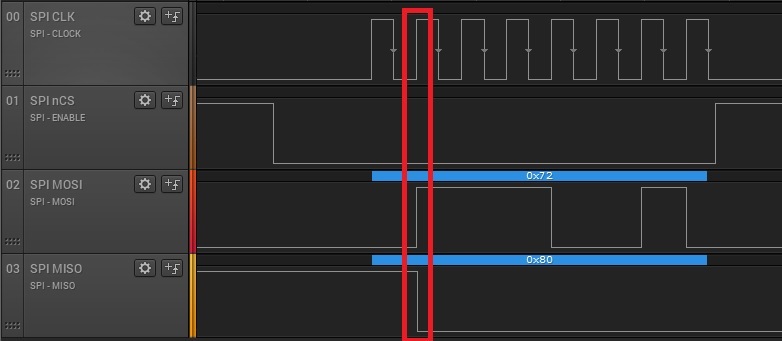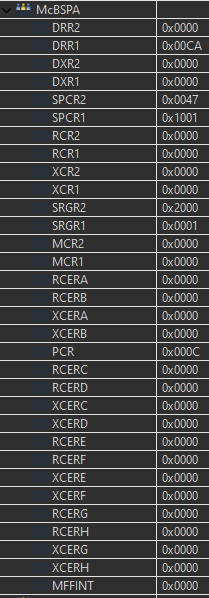Other Parts Discussed in Thread: C2000WARE, MOTORWARE
Hello,
We were able to implement a high-speed (3.75 Mbit/s) UART using the SCI port of the C2000 (each byte received/sent generates an interrupt). However, since we are running an InstaSPIN FOC controller at 10KHz in parallel to this high-speed UART, the code of the main loop is always interrupted by UART reception/transmission interrupts (16 bytes received/12 bytes sent every millisecond) and by FOC controller interrupts. This behavior creates non-negligible delays on code running outside interrupts.
Our idea to solve the above issue would be to implement this UART using the McBSP port with DMA support to give more processing time to the main code. It is important to note that the UART has the highest priority in our system and transfers must be done each millisecond.
Before starting this implementation, we need you to help us on the following questions:
- Is it possible to implement a high-speed UART (target = 3.75Mbit/s) using McBSP and DMA?
- If yes, do you have any examples that can speed up the development?
- If no:
- What are the limitations?
- Is there any other way to improve the current UART solution and reduce processing time?
Regards,
Johann






